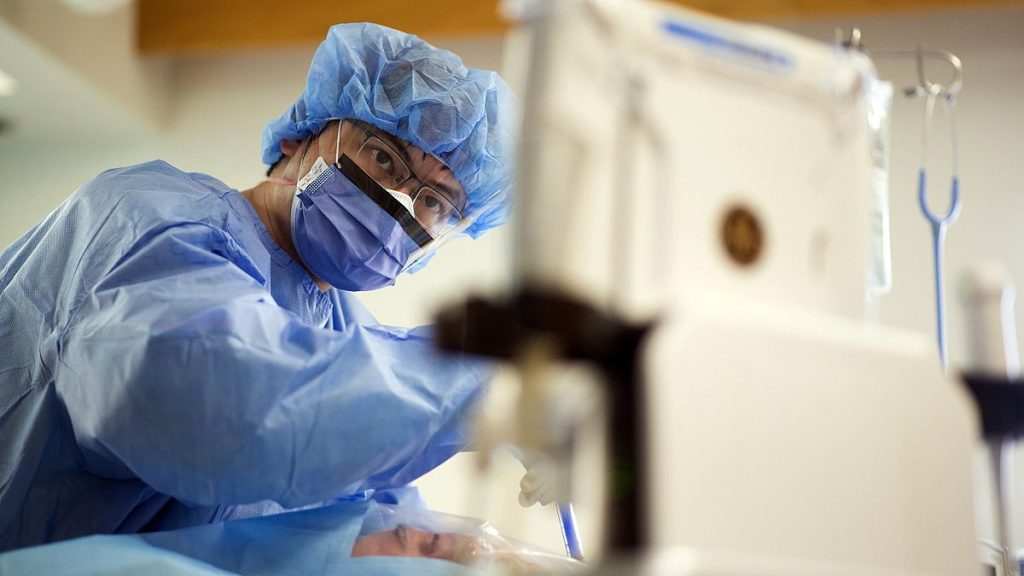A groundbreaking study published in JAMA Surgery challenges the conventional wisdom surrounding surgeon stress and patient outcomes, suggesting that a moderate level of stress may actually be beneficial for patients undergoing surgery. The study, conducted across four hospitals in Lyon, France, tracked the heart rates of 38 surgeons during the initial five minutes of 793 surgical procedures, using heart rate as a proxy for stress levels. Researchers then correlated these stress levels with patient outcomes one month post-surgery, revealing a surprising connection: higher surgeon stress levels correlated with fewer major post-operative complications. This finding, while seemingly counterintuitive, opens up a new avenue of research into the complex interplay between surgeon physiology and patient well-being.
While the study demonstrated a link between elevated surgeon stress and reduced patient complications, it did not find a statistically significant correlation between surgeon stress and other outcomes such as length of intensive care unit (ICU) stay or mortality rate. Researchers attribute this to the relatively low incidence of ICU admissions and deaths within the study cohort. They suggest that a larger sample size might reveal more pronounced effects on these less frequent outcomes. This nuanced understanding of stress and its impact necessitates further research to fully elucidate the relationship between stress, surgical performance, and overall patient recovery.
The study’s findings appear to contradict prior research that linked surgeon stress to adverse patient outcomes. Previous studies, conducted under controlled conditions with induced stressors like loud noises, indicated that stress could lead to increased surgical errors. However, the current study, conducted in a real-world surgical setting, posits that the observed stress levels might represent an “optimal” level of arousal that enhances focus and performance. This distinction highlights the complexities of stress and its context-dependent effects, suggesting that moderate stress, unlike excessive or artificially induced stress, may actually facilitate a surgeon’s ability to enter a “flow state,” characterized by deep concentration and heightened performance.
Several factors contribute to the seemingly paradoxical relationship between surgeon stress and positive patient outcomes. Firstly, the experience level of the surgeons involved plays a crucial role. The study focused on attending physicians, individuals with significant surgical experience and leadership responsibilities. These experienced surgeons are likely better equipped to manage stress effectively, channeling it into enhanced focus rather than succumbing to its debilitating effects. Secondly, the nature of the surgeries performed contributes to the observed results. The majority of procedures were elective, implying a greater degree of predictability and control compared to emergency surgeries, allowing experienced surgeons to anticipate potential challenges and maintain optimal performance even under pressure.
The study emphasizes the importance of considering surgeon physiology as a crucial factor in patient care. While the heart rate measurement used as a stress indicator is a somewhat broad measure, it provides valuable insights into the surgeon’s physiological state. Dr. Jake Awtry, the study’s lead author, acknowledges that the stress measure doesn’t pinpoint specific stress triggers, but it indicates an optimal performance state that translates into improved patient outcomes. This suggests that monitoring surgeon stress levels in real-time could offer valuable information for optimizing surgical team performance and enhancing patient safety.
The research team envisions a future where surgeon stress monitoring becomes a standard practice in operating rooms, providing real-time feedback that can guide decision-making and improve patient care. Similar to how athletes monitor physiological markers to optimize training and performance, surgeons could benefit from real-time stress monitoring to gauge their readiness and manage potential distractions. This information could be used to minimize interruptions during critical moments, ensuring that surgeons maintain optimal focus and minimizing the risk of errors. The study’s findings pave the way for a more holistic approach to surgical care, one that recognizes the crucial role of surgeon well-being in achieving optimal patient outcomes.














